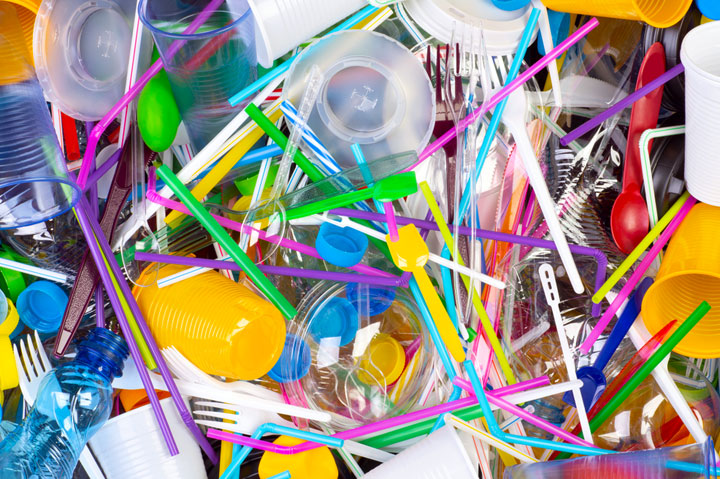September 29, 2021
Democrats Consider Tax on Virgin Plastic
The legislation is one of the ways lawmakers are trying to fund a $3.5 trillion spending bill.
Democrats are weighing legislation to tax the sale of new single-use plastic products as a way to help fund their $3.5 trillion spending bill.

Rep. Thomas Suozzi, a Democrat from New York, introduced the plastic tax on Tuesday, Sept. 28, after Sen. Sheldon Whitehouse, a Rhode Island Democrat, introduced a version of the bill in the Senate in early August.
“This bill with Senator Whitehouse is a commonsense way to create an economic incentive for businesses to use recycled plastic instead of creating more new plastic waste,” Suozzi said in a statement.
The legislation would create a tax on virgin plastic resin that would be paid by manufacturers, producers and importers, which could include promotional products firms. It would start at 10 cents per pound in 2022 and gradually increase to 20 cents per pound in 2024. Revenue raised would pay for plastic waste reduction and recycling, according to The Hill.
The virgin plastic tax would be for single-use products such as packaging and food-service items. Businesses would be able to receive a rebate for non-single use products and plastics used for medical and personal hygiene products, The Hill notes.
“Plastic pollution chokes our oceans, hastens climate change and threatens people’s well-being,” Sen. Whitehouse said in a press release last month. More than 8 billion tons of plastics have been produced globally since the 1950s; in 2016, the United States produced 17% of global plastic waste, but only 9% of plastic waste in the U.S. is sorted for recycling and less than 3% is actually recycled, according to the release.
Several environmental groups have shown support for the tax, saying it will incentivize reuse and recycling and make recycled plastic a more viable option.
The plastics industry strongly opposes the proposed tax, saying it would hurt the middle class and actually generate more waste. “At the end of the day, this would result in a regressive tax that would largely impact those who can least afford it,” Joshua Baca, vice president of the American Chemistry Council (ACC) plastics division, told The Hill. He added that the tax would incentivize the use of other materials that have a higher carbon footprint than plastic.
The ACC, instead, wants policymakers to focus on creating a “circular economy” to extend the lifecycle of products. It has backed policies that would require plastic packaging to contain 30% recycled plastic by 2030, for instance, according to The Hill.
The plastic industry has invested nearly $7 billion to promote advanced technologies that would make it easier to recycle plastic, according to Baca.
“Brands have made a commitment to use more recycled plastics,” he added. “If we don’t produce and make the material, we won’t be in business. This is not only good for our company, bottom line, but it’s good for the environment.”
The proposed tax on virgin plastic is the latest volley in the war on single-use plastic. There are more than 1,000 plastic-reduction laws throughout the United States, according to Surfrider Foundation, a nonprofit that works to protect and preserve the world’s oceans and beaches.
Philadelphia’s bag ban goes into effect Oct. 1., as does a similar ban in Washington state. Restrictions on single-use plastic could benefit the promotional products industry, creating opportunities to sell more branded reusable alternatives, though they could also be a double-edged sword: If they cause costs to go up, retailers and other businesses might have less money available for marketing purposes.